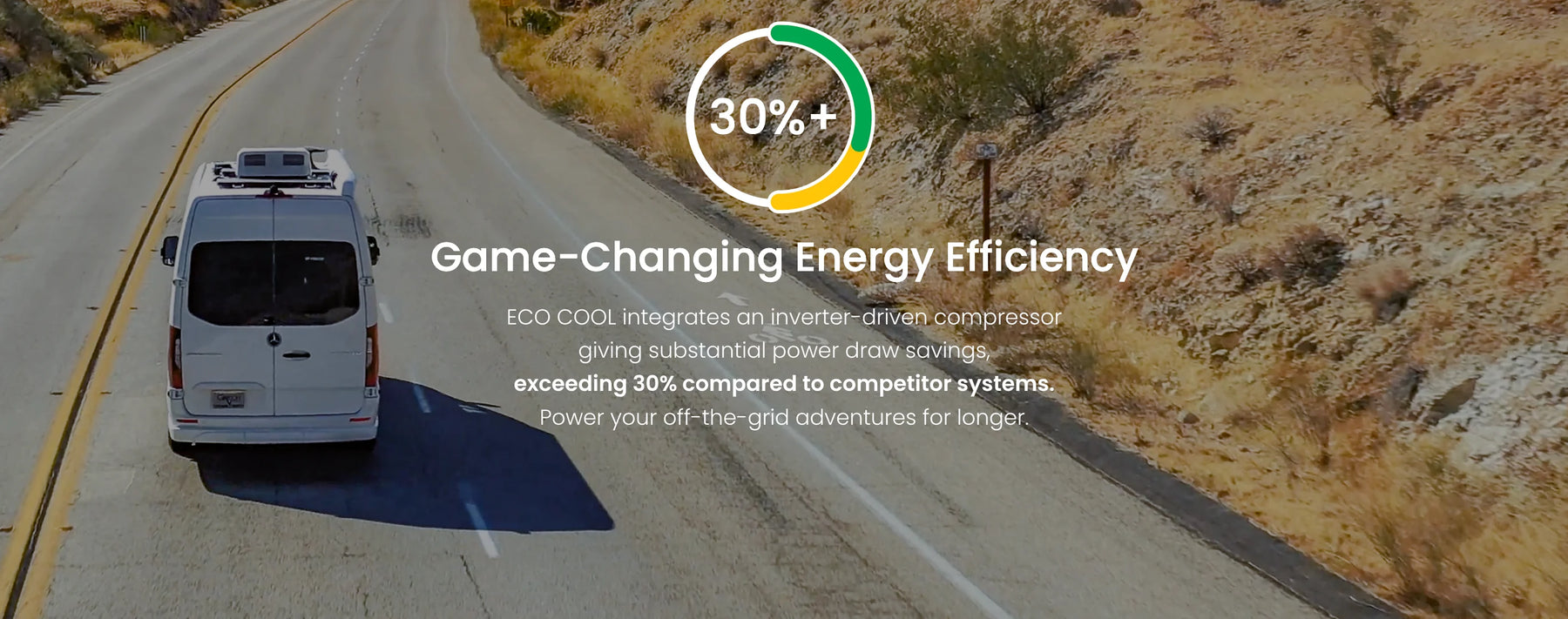
Exploring the Nuances: AC Powered vs. DC Powered Air Conditioners in Campervans
Introduction:
The choice between AC (alternating current) and DC (direct current) powered air conditioners for camper vans is a critical decision that directly impacts energy efficiency, cost, and overall performance. To make an informed decision, it's imperative to delve into the technical nuances that set these systems apart and understand the implications of power consumption on the cost-effectiveness of DC powered air conditioners.
AC Powered Air Conditioners:
AC powered air conditioners have long been the standard choice for residential and commercial applications due to the widespread availability of AC power from the grid. In campervans, where AC power is typically obtained through inverters, these air conditioners are favored for their compatibility and ease of integration. However, AC systems often require more complex components and tend to be less energy-efficient than their DC counterparts, leading to higher power consumption and potential limitations on off-grid adventures.
DC Powered Air Conditioners:
DC powered air conditioners, on the other hand, leverage the native power source of most campervans, offering a more direct and efficient energy conversion process. These systems are designed to operate seamlessly with the 12-volt DC power supply commonly found in vehicles. The absence of an inverter in the power chain reduces energy losses, making DC air conditioners more energy-efficient in theory. However, the practicality of these systems depends on their ability to match the cooling capacity of their AC counterparts without compromising performance.
Power Consumption and Cost Considerations:
When evaluating the cost-effectiveness of AC powered air conditioners, it is crucial to consider their power consumption in comparison to DC units. If an AC air conditioner were to require similar power consumption to a DC unit, the cost advantage of the AC system far outweighs any downsides. The components required for efficient energy conversion can significantly contribute to the overall cost of a DC air conditioning system. Therefore, achieving a balance between energy efficiency and cost-effectiveness becomes a key challenge in justifying the installation of DC powered air conditioners in campervans.
Conclusion:
In conclusion, the choice between AC and DC powered air conditioners in camper vans involves a meticulous consideration of various technical and cost factors. While DC systems offer the potential for increased energy efficiency, their overall cost-effectiveness hinges on achieving a balance between power consumption and component expenses. As technology continues to advance, it is essential for campervan enthusiasts to stay abreast of innovations in both AC and DC air conditioning systems, ensuring that their choice aligns with their specific needs and preferences for an optimal on-the-road cooling experience.
